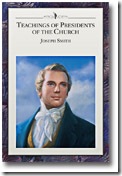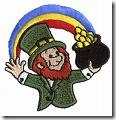I was asked to teach High Priests Group today and my group leader asked that before beginning the lesson that I spend a few minutes teaching the brethren about MS, and how it has affected me. He really wants to improve our sense of brotherhood in the group, and last week Brother Sean endured a grilling on himself.
I was careful not to spend too much time on this because my words are limited AND we needed to get to the lesson. I provided a cursory overview of the disease and my current limitations. I took about five minutes to do this but there were a lot of questions, from disability insurance to how my family is affected. They were interested in what I do each day, and the topic of blogging came up. (A couple of brethren present have read them.) My bishop suggested that I continue to field questions and just put the lesson on my blog. It was a funny comment, but I know he was serious. It was a good idea, actually, as I can probably do the lesson better justice textually than verbally, especially since time was short. So here it is:
------------------
 In the first section of the lesson there is an amazing story about how a prayer of one man, Newel K. Whitney, was answered. Joseph Smith traveled 250 miles on a sleigh from New York to Kirtland, Ohio and recognized Brother Whitney right off as he had seen him in vision, supplicating Heavenly Father. As remarkable as that story is, this lesson is not about prayer or prophets or miracles. The story was more about Joseph’s obedience to a prompting, even though it was terribly inconvenient and difficult. The paragraph following the Newel Whitney account reads:
In the first section of the lesson there is an amazing story about how a prayer of one man, Newel K. Whitney, was answered. Joseph Smith traveled 250 miles on a sleigh from New York to Kirtland, Ohio and recognized Brother Whitney right off as he had seen him in vision, supplicating Heavenly Father. As remarkable as that story is, this lesson is not about prayer or prophets or miracles. The story was more about Joseph’s obedience to a prompting, even though it was terribly inconvenient and difficult. The paragraph following the Newel Whitney account reads:
By May almost 200 more Saints from New York had made their way to Kirtland—some by sleigh or wagon, but most by barge on the Erie Canal and then by steamboat or schooner across Lake Erie. In this move to Kirtland, as in the many other challenging circumstances of his life, Joseph Smith led the Saints in following God’s commandments, no matter how difficult the task.
Adherence to the principle of obedience has been, and continues to be, one of the most important characteristics of the Lord’s people.
Said Joseph, “The object with me is to obey and teach others to obey God in just what He tells us to do. It mattereth not whether the principle is popular or unpopular, I will always maintain a true principle, even if I stand alone in it.”
This is very wise counsel. We don't check ourselves against what any other man may or may not be doing. It is irrelevant.
----------------
This past week my son got his learner’s permit. Many of you have been through the singular experience of teaching a child to drive. I have, and with experience comes a little wisdom. After we were in the car, seat belts fastened and mirrors adjusted, I soberly said, “As you are driving, I may offer some suggestions like which lane to be in or even where to turn, but don’t do these things if it is unsafe at the time. You are responsible for the driving, and even though I say ‘Get in the right lane’ you are ultimately responsible. You can question the advice, or ignore it if it is unsafe. We can discuss it later.”I continued, “However, there is one word that if I say it, you must obey immediately with no questions asked.”
Any guesses what that word is?
I’m sure you know; it is “stop.” If I say that, there is no room for debate, analysis, or discussion. Anything short of immediate and total compliance could be disastrous.
As Latter-day Saints, we have received a lot of counsel from Heavenly Father through our priesthood leaders. Everything is important, but what would you consider to be the “stops?” The things that, if we ignore or rationalize or hesitate, even a little bit, can destroy us.
Hard Stops
- Word of Wisdom violations
- Any form of abuse
- Any degree of pornography
These are the first three that came to mind. Anything else? I’m sure there are others, and I don’t mean to under-emphasize any other gospel precept. For example, I believe that inattention to personal prayers and scripture study will lead to our destruction, I am only trying to make the point that some counsel demands immediate and total compliance.
----------------
Joseph Smith said:
We have been chastened by the hand of God heretofore for not obeying His commands, although we never violated any human law, or transgressed any human precept; yet we have treated lightly His commands, and departed from His ordinances, and the Lord has chastened us sore, and we have felt His arm and kissed the rod; let us be wise in time to come and ever remember that ‘to obey is better than sacrifice, and to hearken than the fat of rams.’ [1 Samuel 15:22.]
What do you think that means? I’ve always struggled with this New Testament passage because I didn’t see sacrifice and obedience as mutually exclusive opposites. Shouldn’t e obey AND sacrifice? Isn’t our obedience sometimes a sacrifice? What does it mean?
I think that it has reference to the “new law” supplanting the old. Yielding our hearts and changing our actions trump any form of rote or manual show of piety. Is it better to learn to not covet, or to covet and then kill a goat to please God? More relevant to our day and circumstances, is it of more eternal value to us to overcome our pride or bid generously at the youth service auction? To truly cleave to our wives or to buy them flowers on our anniversary? In both these examples, both choices are good, but the latter without the former is somewhat hollow. Your thoughts? (This is where blog-a-lesson loses something)











